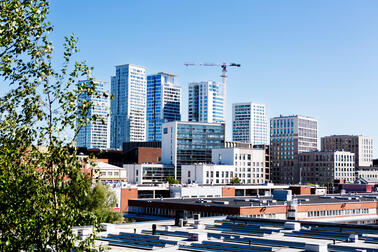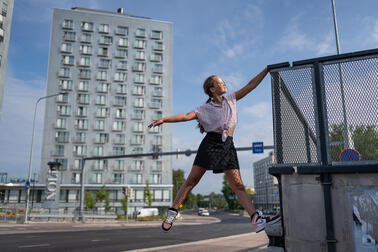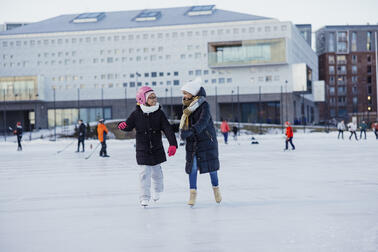
The key successes, challenges and effects of the Helsinki City Strategy 2021–2025, entitled “A place of growth”, are monitored regularly by the city’s management team as part of the monitoring of the city’s finances and operations. In addition to the qualitative analysis, which is based on the reports of divisions and municipal enterprises, the progress of the strategy is also monitored through strategy indicators that have now been published on the Hel.fi website. (in Finnish, will be published later also in English)
After the indicators were published, the first summary of the strategy’s present successes and identified challenges has also been brought up.
Many successfully achieved targets
The city strategy has 13 focus areas. The work for many objectives has been successful while for others the work has only begun.
The successes in the focus areas include:
The most equitable and effective place to learn
- The digitalisation of accepting a place in early childhood education expanded from its piloting phase to cover the entire age group, and the objective of providing upper secondary education students with learning materials and computers free of charge has been achieved.
Ambitious climate objectives and nature conservation
- In April 2022, Helsinki was included in the EU list of the hundred cities seeking to achieve carbon neutrality.
Art and culture as enablers of a good life
- The updated version of Helsinki’s tourism and events programme has been completed. Dance House Helsinki, which is supported by the city, and the refurbished Tram Museum, which is managed by the Helsinki City Museum, are now both open.
An international city of equality
- “MakeSomeNoise”, the forum developed by the immigrant young people at Helsinki’s Youth Services, has expanded to become a national operations model.
Cultivating safe neighbourhoods with distinctive identities
- The calculation model for the index of young people’s positive discrimination was updated in early 2022.
A smoothly functioning and beautiful city
- Housing construction has remained on the intended level for the beginning of the year, despite the issues encountered.
Intelligent traffic solutions underpin smooth transport
- The implementation of intelligent traffic solutions progresses for the light control of bicycle pedestrian traffic and tram traffic as planned.
Improving the health and well-being of Helsinki residents
- The pandemic has challenged the well-being of residents and students and the occupational well-being and availability of city personnel. To counterbalance this, the city has started to use the separate pandemic recovery appropriations around the city organisation.
Responsible finances as the basis for sustainable growth
- Many actions aiming to improve productivity have been started and the finances assessment process’ development actions for supporting the reconciliation of the investment programme and the city strategy have been defined.
Helsinki is an attractive employer
- New operations models, such as emergency substitution options in early childhood education and new onboarding models, have been tried out in order to improve the availability of personnel. A new operations model called ‘Supervisor’s successful first steps’ (Esihenkilön onnistunut alkutaival) has been introduced in the recruitment, onboarding and early-stage training of new supervisors.
Data and digitalisation help run a smart city
- Basic education counselling and the steering responsibility over municipalities of residence are concentrated in Ohjaamo Helsinki. The students have also been provided with the necessary terminal devices free of charge, and accepting a place in early childhood education has been digitalised.
International workers and businesses find Helsinki appealing
- The city’s employment situation has developed positively after the pandemic, but the rate of long-term unemployment remains on a high level.
Promoting Helsinki’s interests nationally and engaging in international cooperation
- Russia’s aggressive war in Ukraine has affected international cooperation significantly. Cooperation with other capitals in the Nordic countries and the Baltic area has grown closer.
Impact of the pandemic and the war in Ukraine
The pandemic and recovering from it and Russia’s aggressive war in Ukraine affect the progress of some strategic objectives.
As a consequence of the pandemic, things such as the demand for culture and leisure services have not yet returned to their pre-pandemic levels when measured during the strategy period’s first assessment period. The pandemic has also impacted the well-being of residents and students.
Russia’s aggressive war in Ukraine is visible in the way civil defence and preparedness now have a more central role. Furthermore, the impact of the war can in the future cause considerable uncertainty for the whole construction sector and Helsinki’s attractiveness as an investment.
Photo: Jussi Hellstén


